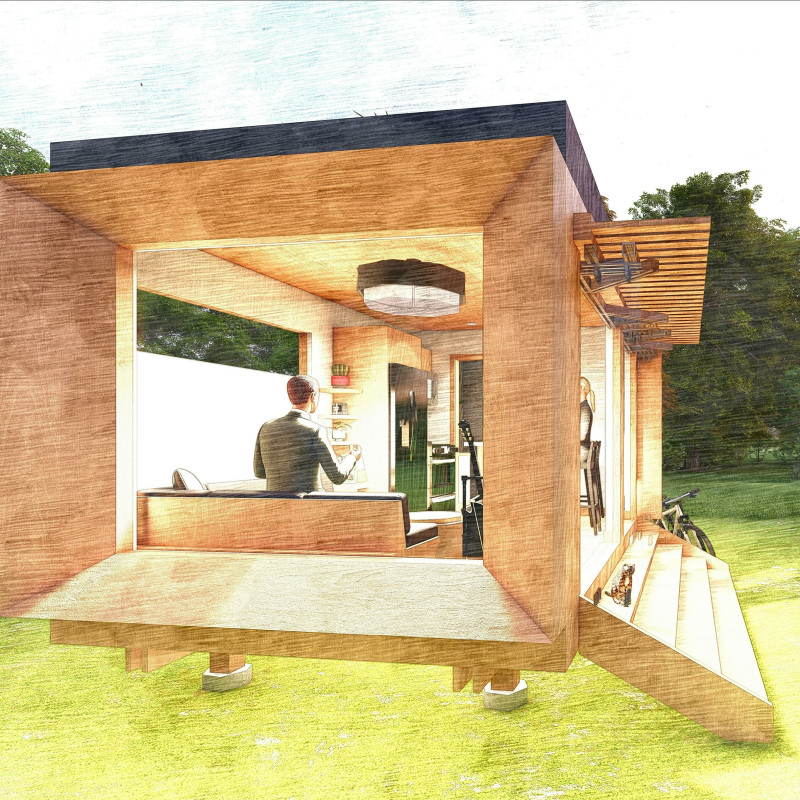5 key facts about this project
The architectural design presents an innovative micro-home aimed at balancing economic efficiency with environmental responsibility. Situated in an area that values sustainability, the residence merges naturally with its surroundings. The overall design concept focuses on creating an expansion of living spaces into the outdoors, fostering a close relationship between the inside and outside.
Design Concept
The layout emphasizes the separation between public and private spaces, reducing the need for transitional areas like hallways. Each part of the home is designed to serve a specific function, promoting practicality. Large floor-to-ceiling glass doors invite natural light and create a direct connection to the outdoors. This approach enhances the feeling of space and encourages interaction with the environment.
Material Selection
A focus on sustainable and functional materials is evident throughout the home. Red cedar is a primary material, valued for its durability and natural resistance to decay. This choice connects the design to the landscape while also adding visual warmth. Gypsum board is used for interior finishes, contributing to a modern look. Plywood substrates and softwood framing provide structural support and stability, reinforcing the overall design.
Sustainable Features
The micro-home incorporates off-grid technologies such as a solar bank and a water purification system, emphasizing self-sufficiency. A rooftop garden provides an opportunity for residents to grow plants, blending urban farming with residential life. These features align with current goals of reducing ecological footprints and living in harmony with nature.
Construction Methodology
The method of construction uses modular fabrication, allowing for quick assembly at the site. The home is divided into three modules: a living module, a kitchen module, and a sleeping module. These are fabricated off-site, making the on-site construction process faster and more efficient. This approach not only saves time but also reduces construction waste, supporting environmentally conscious building practices.
The expansive glass doors offer a framed view of the landscape, creating an inviting atmosphere that blends indoor comfort with the natural environment.



















































